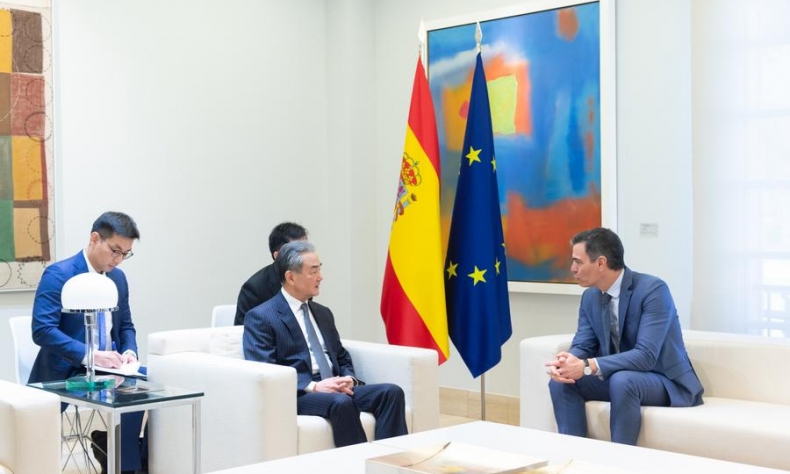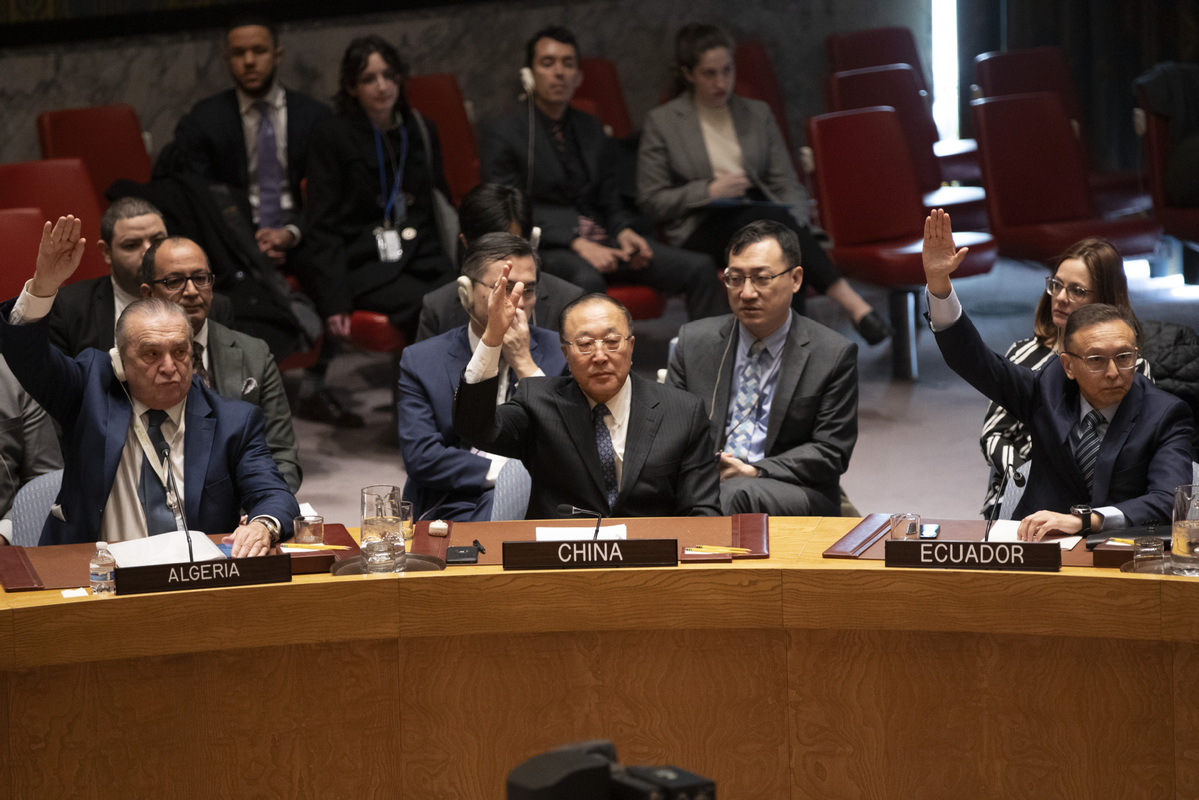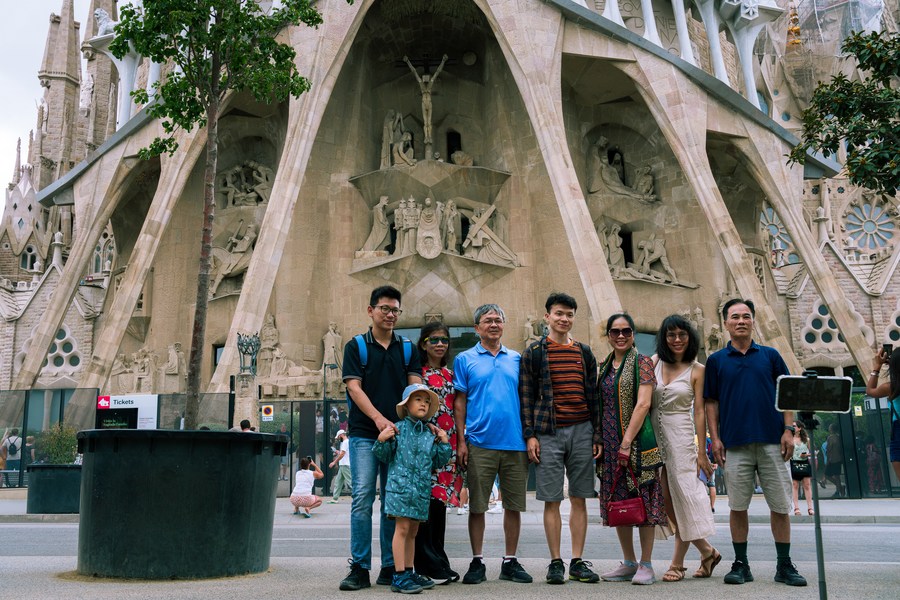A Meaningful Message

China will remain a force for stability to promote cooperation between countries, which is Foreign Minister Wang Yi’s message to Europe.
Chinese Foreign Minister Wang Yi’s official tour to Europe, where he attended the Munich Security Conference (MSC) in Germany and also visited Spain and France, was timely amid an uncertain international situation, carrying the message that win-win formulas should prevail over lose-lose views if the international community wanted to move ahead.
Wang Yi, who is also a member of the Political Bureau of the Communist Party of China Cenral Committee, attended the MSC on February 17, and met the heads of governments and top diplomats from countries including Germany, France, the EU, United States, United Kingdom, Canada, Argentina and Ukraine. The three-day annual event this year saw a record turnout with almost 1,000 participants, about 50 heads of state and government, and more than 100 ministers.
Wang Yi also spoke in the “Conversation with China” session. In his keynote speech titled “A Staunch Force for Stability in a Turbulent World,” he said China and Europe, as two major civilizations, should see each other as partners, and work united to inject positive energy into a volatile world. He also stressed China’s desire to work with the U.S. “along the right path of mutual respect, peaceful coexistence and win-win cooperation” and explained how the China-Russia relationship benefits “the strategic stability of the Asia-Pacific and the world.”
The most important message that Beijing’s top diplomat conveyed was that China will be a stabilizing force in a turbulent world, promoting cooperation between major countries with mutual respect and mutual trust. It will respond to hot-button issues through dialogue and consultation, strengthen global governance through solidarity and collaboration, and promote global growth through openness and mutual benefit.
Wang presented China’s viewpoints on global issues, including well-known regional conflicts with global implications such as the ones in Eastern Europe and the Middle East. During the MSC and the rest of his Europe tour, it was apparent that several Western leaders would like, in varying degrees, China’s direct involvement in finding a solution for such conflicts, though China did not create the conflicts, as Wang Yi reminded his audience. It is trying to contribute a solution, keeping in mind the several factors at play. Beijing’s view is that historical experience proves that the end-point of any conflict is to return to the negotiating table.
Wang Yi also met German Chancellor Olaf Scholz on the sidelines of the MSC. The world’s second and third largest economies, respectively, oppose protectionism, and once again, showed willingness to have exchanges in global trade and investment, bilateral issues and regional security issues to usher in peace in Eastern Europe and the Middle East.
Wang Yi’s next stop was Spain. In Madrid he was received by King Felipe VI, Prime Minister Pedro Sánchez, as well as his Spanish counterpart José Manuel Albares. Significantly, Sánchez highlighted China’s “important role” in peace and stability, specifically to find a way out in Gaza and Ukraine, according to RTVE, Spain’s largest state-owned public media company.

Madrid and Beijing also expressed support for each other’s territorial integrity, and highlighted the special relationship manifested by the China-Spain comprehensive strategic partnership, which will celebrate its 20th anniversary in 2025.
Both countries are willing to jointly tackle global challenges such as climate change, food security and public health. They have also agreed to strengthen cooperation in fields such as green energy, electric vehicles and telecommunications, as the Chinese Foreign Ministry stated.
Calling Spain as a major country “with significant international and regional influence,” Wang Yi said Beijing is willing to work with Madrid to take their relations to the forefront of China-Europe ties. Indeed, both China and Spain, members of G20, have significant intercontinental reach. Chinese and Spanish are two of the UN’s official six languages and unlike many other major powers, Spain and China do not have any political, geopolitical, territorial or historical dispute.
According to the Spain-China Foundation, in 2023, China was Spain’s fourth trading partner, its second goods supplier and a top destination for Spanish exports. China is among Spain’s top three trading partners outside the EU, while Spain is China’s fifth largest trading partner within the EU. China has lifted a 24-year-old ban on Spanish beef imports, at a time when farmers in Europe are protesting against the stringent regulations, high costs and cheap imports threatening their livelihoods.
The announcement about lifting the ban came one year after Beijing approved two protocols for the export of persimmons and almonds. As a result, it is envisaged that by 2025, some 50,000 tonnes of Spanish almonds could be exported to China, representing more than 40 percent of the production in Spain. With the balance of trade being a key factor in bilateral relations, the agriculture-related measures announced by Beijing will positively contribute to them, according to Spanish analysts.
Beijing’s moves come as Spain holds the eighth highest agri-food trade balance in the world and the fourth in the EU. The sector is of international strategic importance as it guarantees food security with high resilience. Spain benefited from this advantage during the pandemic.
Also, both nations are working to surpass the number of Chinese tourists who came to Spain in 2019, reaching a whopping 700,000 visits. To reach that goal, local tour operators say Madrid should ease visa requirements for Chinese nationals as a reciprocal measure. Spaniards can stay in China for up to 15 days without requiring a visa. Spain received a record 85.1 million international tourists in 2023.

In Paris, Wang Yi met with President Emmanuel Macron and his Diplomatic Counselor Emmanuel Bonne, in the context of bilateral strategic dialogue as part of 20 years of their “global strategic partnership” and 60 years of their diplomatic ties in 2024. The year promises to be full of meetings, exhibitions, greater people-to-people exchanges and more direct flights between France and China.
In accordance with their global strategic partnership, both sides are ready to continue working jointly for sustainable development, environmental protection and fighting against climate change. Paris also welcomed the adoption of the ambitious Global Biodiversity Framework at COP15 under Chinese presidency, and invited China to support the oceans conference to be held in Nice in 2025, co-chaired by France and Costa Rica. France anticipates intensification of bilateral trade in various sectors, including aeronautics and agri-food, as well as more access to the Chinese market.
In 1964, French President Charles de Gaulle, breaking the norms of continental Europe during the Cold War, reached out to Chairman Mao Zedong to establish diplomatic ties. His decision was influenced by the importance of China in history as well as in contemporary times. As Wu Jianmin, a former Chinese ambassador to France, said: “De Gaulle was the first Western head of state … to predict the rise of China.”
All in all, Wang Yi’s visit to Germany, Spain, and France had a strong EU-China dimension with a concrete strategic background. The EU-China trade is worth 2.3 billion euros per day. The EU trade deficit of almost 400 billion euros is a hot issue, according to EU statistics.
Wang Yi said Beijing will continue to relax market access, follow international trade rules, and remove barriers for foreigners to come to China. The EU seeks a level playing field for European enterprises in China, i.e., the same facilities to operate in China that Chinese enterprises have to operate in Europe. Both are optimistic the differences can be ironed out at the negotiating table.
It should be borne in mind that in their most recent statements the EU authorities have said they do not to intend to decouple from China or turn inwards. A year ago, members of the EU Chamber of Commerce in China warned that the risks of interactimg with China should not be overestimated, nor the benefits of engagement underestimated. Wang Yi emphasized that “reducing risks” cannot lead to cooperation, and “reducing dependence” cannot reduce mutual trust. Therefore 2024 should see meaningful dialogues and candid exchanges.
After all, the EU and China together represent about 35 percent of the world economy. Their interaction help shaping global dynamics, trade and global governance. This year is an opportunity to sum the experiences of this singular relationship.
Augusto Soto is director of the Spain-based Dialogue with China Project.
 Facebook
Facebook
 Twitter
Twitter
 Linkedin
Linkedin
 Google +
Google +










